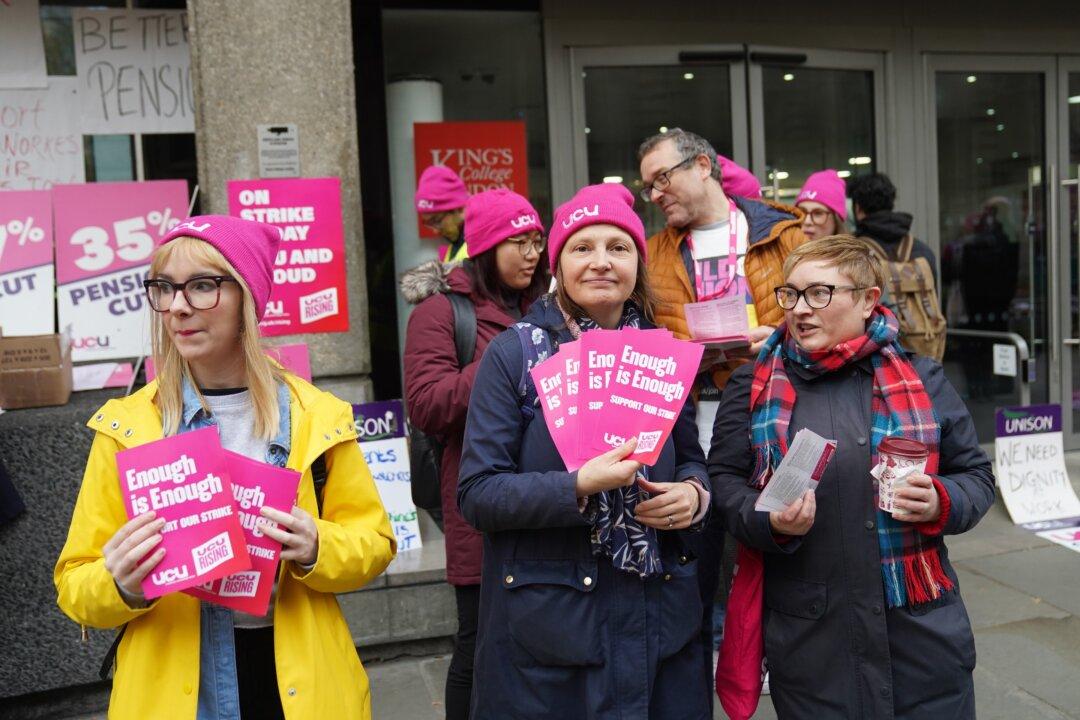University staff and civil servants staged more walkouts on Tuesday, as labour disputes continue to cause disruptions in the UK’s public sector.
Members of the University and College Union (UCU) across 150 British universities began the first of three days of strike action this week as part of a dispute over pay, pensions, and working conditions.





